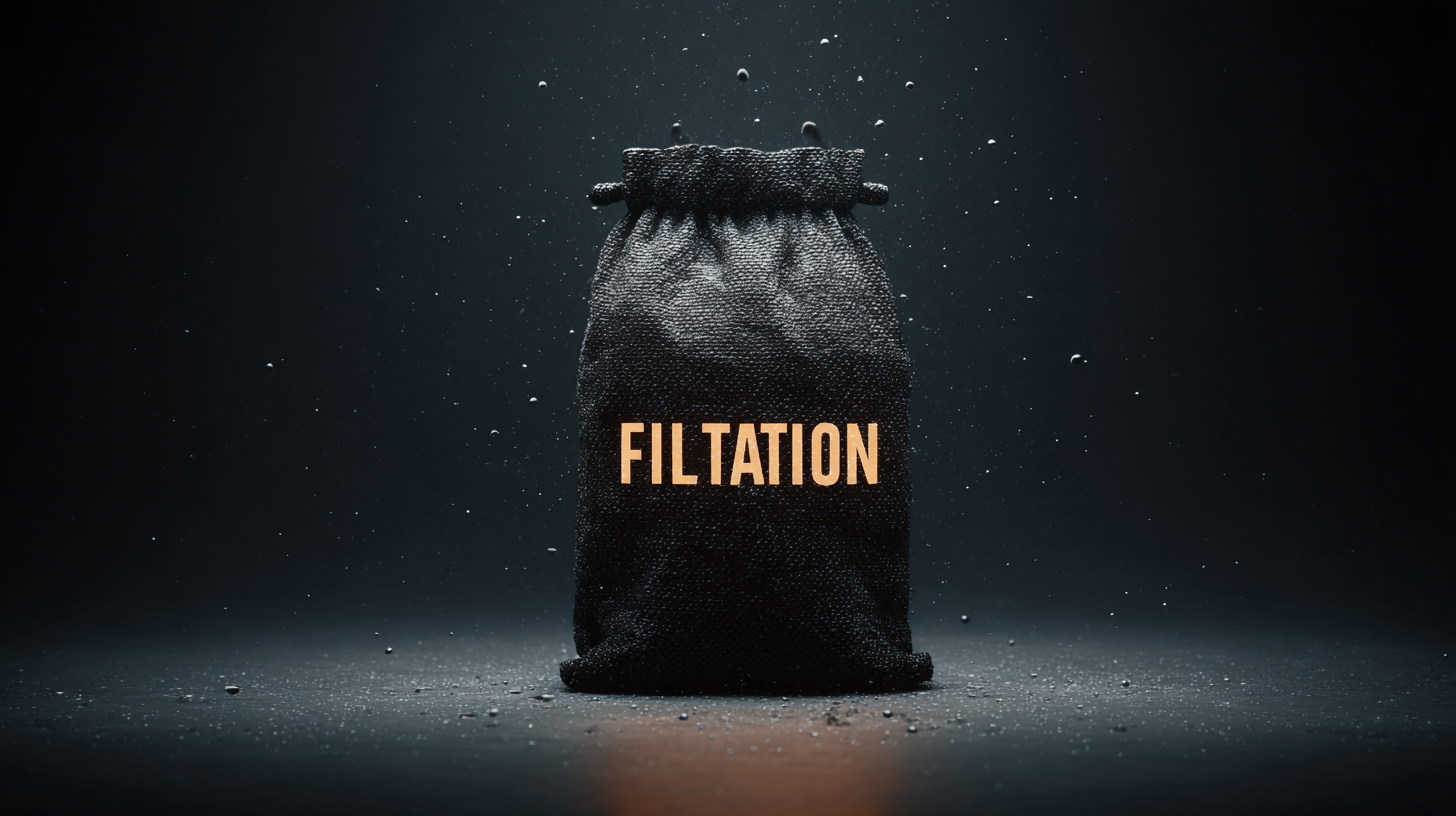Leave Your Message
Request a Quote
As global industries increasingly prioritize environmental sustainability and efficiency, the demand for high-quality filtration solutions has surged. The filtration bag market is projected to reach $4.2 billion by 2027, driven by stringent regulations on wastewater treatment and air pollution control. These bags are pivotal for various applications, including food and beverage processing, pharmaceuticals, and chemical manufacturing. As buyers worldwide seek the best filtration bag options, exploring alternative filtration solutions becomes essential. This transition not only enhances operational effectiveness but also adheres to evolving compliance standards. Understanding the intricacies of import-export certifications in this industry is vital for global buyers looking to invest in innovative filtration technologies that meet their specific needs.

The landscape of filtration technologies is evolving rapidly, with innovative alternatives to traditional filtration bags emerging on the market. These new solutions not only enhance efficiency but also address environmental concerns associated with conventional materials. From membrane filtration systems to advanced cartridge filters, each technology offers unique advantages that cater to diverse industrial needs.
When considering these alternatives, it's essential to evaluate the specific requirements of your filtration process. For instance, membrane filtration can provide finer filtration while reducing the footprint of your system. Similarly, cartridge filters are highly versatile and can be easily replaced, ensuring minimal downtime and consistent performance.
**Tip:** Always assess the compatibility of the filtration solution with your current setup. Conducting a thorough cost-benefit analysis will help in selecting the most efficient and economical option.
As industries increasingly prioritize sustainability, eco-friendly filtration technologies are also gaining traction. Innovations such as bio-based filters and recycled materials are not only effective but also contribute to a circular economy. Implementing these alternatives can significantly reduce environmental impact without compromising filtration quality.
**Tip:** Research manufacturers who offer customizable solutions and track their sustainability practices to ensure your filtration choice aligns with your environmental goals.
As global markets increasingly prioritize clean and sustainable solutions, the filtration industry is experiencing significant growth. The global automotive fuel filter market, valued at approximately $3.0372 billion in 2023, is anticipated to reach $4.829 billion by 2031, showcasing a robust compound annual growth rate (CAGR) of 6.05% from 2024 to 2031. This growth reflects not only the rising demand for efficient fuel filtration systems but also the continuous drive toward improving vehicle emissions and overall sustainability.
Parallel to this, the ceramic filter market presents a compelling opportunity with an estimated size exceeding $1.5 billion in 2023. Its growth trajectory, characterized by a staggering CAGR of over 13.5% from 2024 to 2032, is largely fueled by escalating environmental concerns and stringent regulations. These trends underscore a broader movement toward adopting advanced filtration technologies, which not only enhance product performance but also contribute to environmental protection efforts. The rising popularity of home filtration systems, projected to reach $18.7 billion by 2032 at a CAGR of 4.02%, further illustrates the diverse opportunities across various filtration segments, catering to both residential needs and industrial applications.
This chart compares various filtration solutions based on their effectiveness, cost-efficiency, and durability, providing global buyers insights into the best options available.
Sustainability has become a crucial factor for industries around the globe, particularly in the filtration sector. As environmental concerns rise, manufacturers and consumers alike are seeking eco-friendly alternatives to traditional filtration bags. These alternatives not only contribute to reducing waste but also align with the growing demand for sustainable practices. Biodegradable materials, such as plant-based polymers, are emerging as viable substitutes that maintain performance while minimizing ecological footprints.
In addition to biodegradable options, innovative recycling programs are being developed to extend the lifecycle of filtration products. Companies are exploring the potential for reusable filtration bags that can significantly decrease the volume of waste generated by single-use products. This shift not only provides a more sustainable option but also presents cost-saving benefits for businesses that aim to reduce operational expenses without compromising on quality. With these advancements, the filtration industry is paving the way for more responsible and sustainable practices that resonate with eco-conscious consumers.

In recent years, the emphasis on cost-effectiveness in filtration solutions for various industries has become increasingly vital. A comprehensive review indicates that water pollution from industrial sources contributes significantly to environmental degradation, particularly in developing regions where regulatory frameworks may be lacking. Advanced technologies, such as membrane filtration and bioremediation, offer promising alternatives to traditional filtration bags, presenting both economic and environmental advantages.
For instance, the implementation of direct membrane filtration (DMF) strategies has been shown to enhance resource recovery from municipal wastewater, improving not only the efficiency of wastewater treatment but also reducing operational costs.
Moreover, the techno-economic analysis of water efficiency practices highlights the potential for up to 60 percent savings in water withdrawal for specific sectors within U.S. manufacturing. This statistic underscores the need for industries to adopt innovative filtration methods that align with sustainability goals while also addressing economic constraints.
With the continued development of cutting-edge materials and methods for contaminant removal, industries can efficiently tackle challenges posed by pollutants like PFAS and heavy metals, ensuring both compliance with environmental standards and cost savings in the long run.

As the global filtration technology landscape evolves, alternative filtration solutions are becoming increasingly relevant for diverse markets. The projected growth in the ion beam technology market, expected to rise from $563.04 million in 2025 to $1017.92 million by 2033, underscores the demand for advanced filtration methods. This trend signifies not just growth in monetary terms but also reflects ongoing innovations that cater to specialized needs, such as versatile applications across various industries, including indoor air purification and specific uses in pet care.
Furthermore, the pet air purifier segment illustrates how filtration technology is expanding beyond traditional uses. By segmenting products based on types like HEPA and activated carbon filters, as well as applications for indoor versus outdoor use, the market caters to a diverse clientele, including pet owners and retailers. As businesses align with modern consumer preferences, the emphasis on reusable filtration options shines a light on sustainability, making alternative solutions not only viable but essential in meeting future demands. This shift in filtration technology is a critical focus for global buyers looking to navigate an ever-evolving market landscape.

